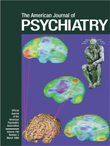To the Editor: In the editorial in the February 1998 issue, Dr. Gary Tucker describes several instances of what he suggests are negative impacts of DSM-IV on the practice of psychiatry. We see these problems stemming not from the appropriate use of DSM-IV but from its misuse. It has long been recognized that providing clearly defined, user-friendly diagnostic criteria carries with it some potential side effects. For this reason, DSM begins with two chapters (“Introduction,” “Use of the Manual”) that are meant to function as an owner’s manual. In the same way that driving a new car or operating a new computer without reading the instructions is done at one’s peril, skipping over these sections can have negative consequences.
We are pleased that Dr. Tucker’s editorial gives us an opportunity to emphasize some of the more important caveats. Whether or not the patient’s presentation meets DSM criteria for a particular disorder has always been regarded as just one element of the overall evaluation and treatment planning process. All three editions of DSM note that “[m]aking a DSM diagnosis represents an initial step in a comprehensive evaluation leading to the formulation of a treatment plan. Additional information beyond that required to make a DSM diagnosis will invariably be necessary” (DSM-III, p. 11; see also DSM-III-R, p. xxiv; DSM-IV, p. xxv).
As illustrated in Dr. Tucker’s case conference example, it is crucial that criteria not be applied in a mindless fashion, without regard to the clinical context. In DSM-IV, we expanded the introductory sections to warn that “diagnostic categories, criteria, and textual descriptions are meant to be employed by individuals with appropriate clinical training and experience in diagnosis. It is important that DSM-IV not be applied mechanically by untrained individuals. The specific criteria…are meant to serve as guidelines to be informed by clinical judgment and are not meant to be used in a cookbook fashion” (DSM-IV, p. xxiii).
Informal polls we have conducted during DSM workshops have revealed that many DSM users never read the introductory sections. One solution, suggested only half-jokingly, is to publish DSM with a lock that can be opened only after the reader has finished reading the introductory sections. In lieu of adopting such a draconian measure, all of us in teaching positions must continue to emphasize that the DSM diagnosis is only part of the story and that it can be used effectively only in conjunction with sharp clinical thinking.

